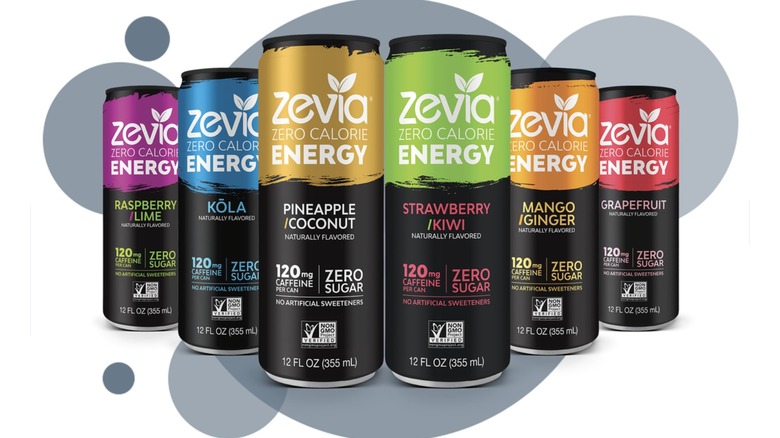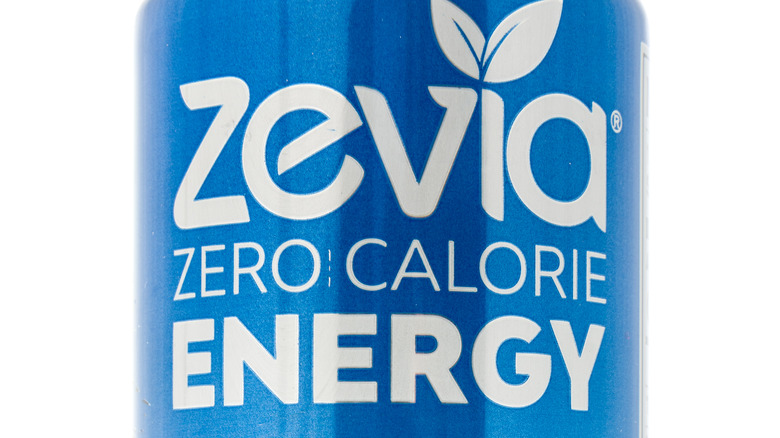Are Zevia Energy Drinks Good For You?
What makes a product appealing to a consumer? When it comes to health products, in particular, many customers find themselves drawn to businesses that start from the ground up with a mission in mind for their product — and energy drinks are no exception. Paddy Spence, CEO of the Zevia beverage company, has integral knowledge of the health food industry (via Men's Health). As an athlete and businessman, Spence's years of experience as a triathlon competitor and his health food marketing background have helped him understand what our bodies need to operate at peak performance.
A single 12-ounce can of Zevia Zero Calorie Energy contains zero sugar, carbs, sodium, calories, or fat. Variety packs are available for purchase with flavors, such as Raspberry Lime, Grapefruit, Mango Ginger, and Pineapple Coconut (via Zevia). According to Men's Health, Zevia's use of plant-based ingredients makes this beverage gluten-free, vegan, kosher, and both Paleo and Keto diet-friendly.
But as with all energy drinks, the caffeine content is always worth evaluating to determine which beverage is right for you. How much caffeine is in a can of Zevia?
Zevia's energy-boosting ingredient
Regardless of flavor, each can of Zevia Zero Calorie Energy contains 120 milligrams of caffeine (via Zevia). According to Caffeine Informer, Zevia is "high" when it comes to caffeine content. Made up of carbonated water, stevia leaf extract, tartaric acid, citric acid, natural flavors, and caffeine derived from coffee beans. Caffeine Informer puts Zevia energy drinks into the category of "highly caffeinated soda," rather than an energy drink, as most energy drinks contain more than 1 energy-boosting ingredient.
Even with caffeine being Zevia's only energy source, ingesting too much can pose some health risks. The U.S. Food and Drug Administration states that healthy adults should limit their daily caffeine intake to 400 milligrams or less. Exceeding this limit can lead to a caffeine overdose and cause side effects, such as muscle tremors, an accelerated heart rate, urination difficulties, insomnia, and headaches, according to the Mayo Clinic. Therefore, it's important to consume energy drinks in moderation to ensure your daily intake does not exceed that 400-milligram limit.
Other ingredients in Zevia energy drinks may provide some health benefits. For example, the stevia leaf extract used to give Zevia energy drinks their deliciously sweet flavor may aid in weight control. In addition, a 2011 study published in The Journal of Pharmacology & Pharmacotherapeutics suggests that stevia can help those diagnosed with type 2 diabetes regulate their glucose levels. Overall, it seems that Zevia energy drinks serve as a great alternative to other sugary or soda beverages.


